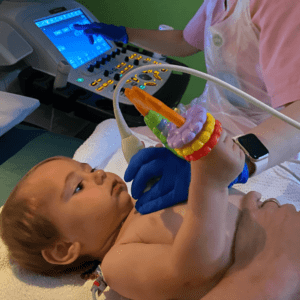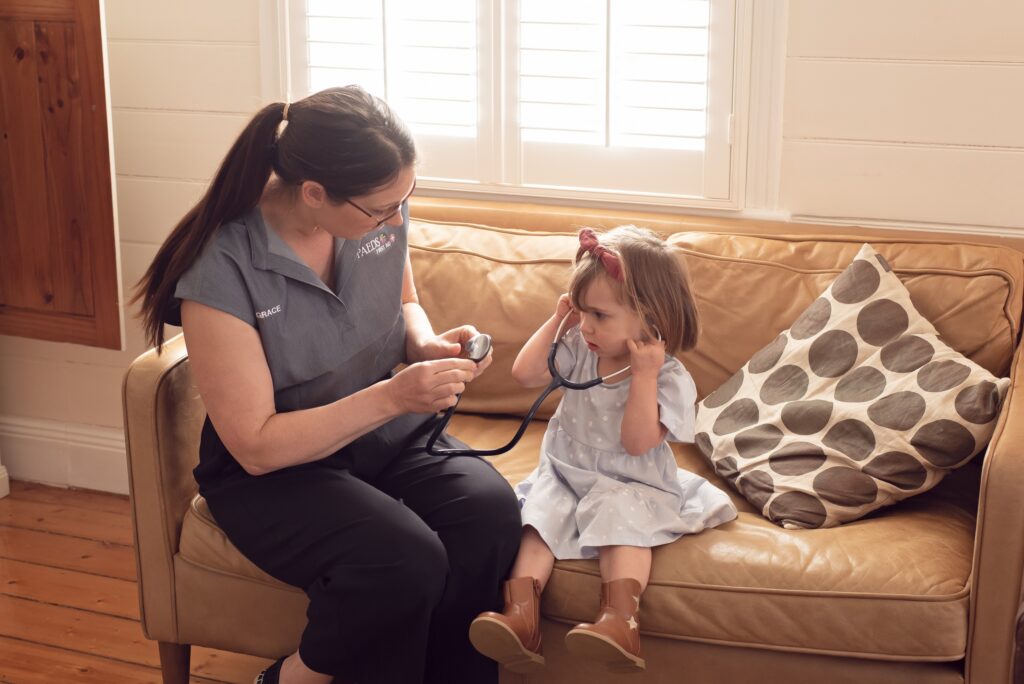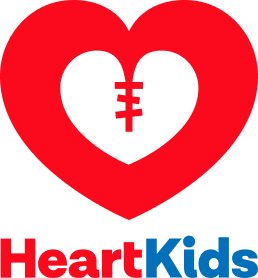As a Paediatric Critical Care nurse, I have spent countless hours caring for children with congenital heart disease. I have sat with parents as they found out, following birth, that their child had a rare heart condition and required open heart surgery within days.
I have held the hands of children following their third, fourth or even fifth surgery – bearing witness to all the challenges and hurdles that children and their families overcome during their journeys with CHD. It’s always such a gratifying experience when children come back to visit us with their parents after they have recovered, and we can hear about all the amazing things they are doing. We love to receive photos and updates from families about first days of kinder or graduations from high school, we feel a sense of pride that we have been able to contribute to that journey, even if only a small way.
When I became a mother myself, I would be lying if I said that I didn’t feel a sense of anxiety about the pregnancies and the ultrasounds, I had a small thought that maybe one of my children would have something. Caring for so many children with rare conditions, the odds of 1 in 10000 were more real to me, though logically I knew that for most parents this is not their experience.
When my third baby was 5 weeks old and during the beginning of Melbourne’s longest lockdown, I took her into the emergency department as I became concerned about her breathing and her reduced feeding overnight.
When we arrived and they attached her to the monitor I could see she was in SVT (supraventricular tachycardia) her heart rate was over 300 beats per minute, and she was very lethargic. I watched the team go through the procedure for treating SVT, knowing each step they took like the back of my hand, as I not only had treated children with this myself, but I teach other health professionals how to do this also.

But it was different because I was the mother to that baby in the bed, she was my daughter, and in that moment I no longer knew what I was, was I mother or was I nurse, I could feel myself swinging between both identities as the staff went through the familiar processes while treating my baby girl. When they dunked her head in ice water, (a vagal manoeuvre to drop her heart rate) I felt myself let out a primal groan as she cried. Her heart rate reduced for a period of time but eventually it set off again when she got the hiccups and they had to administer her Adenosine, a medication which literally stops the heart. I wondered what Freya felt in those moments and held her close trying to reassure her that she was not alone.
We were admitted for several days while she was established on medication to control her heart rate and she was diagnosed with Wolff-Parkinsons-White, a rare conduction abnormality of the heart where extra electrical triggers set off an excessively high heart rate. I was separated from my family support system and older children due to lock down measures and although the hospital was a familiar environment for me, I found it exposing to be there as a parent with my child as the patient. The biggest challenge for me was to be on the other side and to feel the total lack of control over each aspect of our experience as mother and child.
As a nurse I have always had empathy towards families who have children in hospital, I see my job as caring for a family unit and not just for a child.
However, being a mother on the other side of the coin, I felt lost and unable to find anything to cling to. I was constantly worried about all the things I know can go wrong and hyper focused on every little detail. I was unable to sleep and unable to eat and it took me a while to regain that even after we went home. What did help was the handful of good friends and colleagues who checked in on me during that time, as in hindsight I can see that I was struggling to cope with the shock diagnosis, the hospital admission and the separation from my other children and husband.
Once we got home, I was able to settle back into my role as mother and found my daughter has grown and thrived with her current medication regime. My daughter Freya is dynamic, intelligent, loves to sing and dance and play with her big brother and sister. We call her our little hummingbird, as a hummingbirds wings rotate 80 times per second (very fast).
What this experience has reinforced for me is that hospital is only one part of the journey, there is everything that happens before and everything that happens afterwards.
Asking for help from my support networks was important, knowing someone was looking after my other children or even just calling to check in on how we were doing and making sure we felt well supported even after we got home.
While I continue to work in intensive care, I have shifted my focus from supporting children and families solely in the hospital setting to extending my support to them in the community, both before and after their admission. The benefit of my knowledge as a PICU nurse alongside my own personal experience as a mother of a child with CHD, means I can provide unique support to families and carers of children with CHD and other complex medical illnesses.

There may be more admissions in Freya’s future, it looks likely that she will need an ablation of her extra pathways when she is big enough. She is now 3 years old and loves to sing and dance, and as we live on a farm, she is always busy collecting chicken eggs or helping in the orchard. As hard as this all has been, I am thankful for the many lessons it has taught me as a mother and as a nurse.




